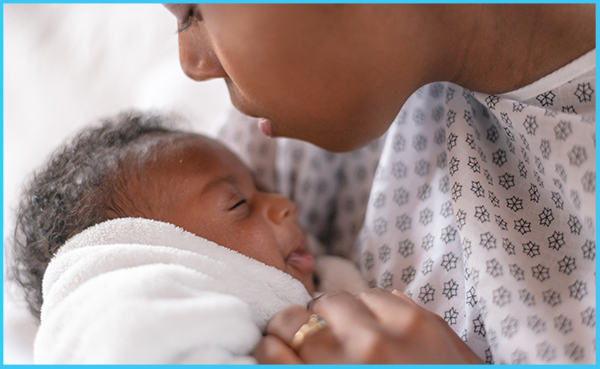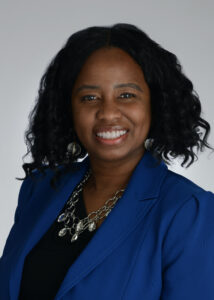
Growing up in rural Arkansas, Sharla Smith, PhD, MPH loved children and dreamed of becoming an OB-GYN and delivering babies. But after earning a biology degree and having a baby of her own to care for, Smith opted to forgo medical school and switch gears. Luckily, she also discovered a new path—public health—that would enable her to continue working toward a heartfelt goal: tackling health disparities for black women and black babies.
Smith earned a master of public health degree and then a doctorate in Health Systems and Services Research from the University of Arkansas for Medical Sciences before becoming an assistant professor in the Department of Population Health at the University of Kansas School of Medicine.

Sharla Smith, PhD, MPH
“Public health seemed like the best approach for a person with my type of passion,” says Smith. “I wanted to dismantle some of the systems that create health disparities and barriers to achieving good health outcomes.”
The disparities are striking. On a national level, black maternal and infant mortality rates are worse they were 15 years before the end of slavery, Smith points out. In Kansas, black infants have been dying at two to three times the rate of white infants for more than 30 years, and black women die of pregnancy-related factors at two to three times the rate of white women.
Those disparities persist despite education and income levels. College-educated black women, for example, have worse health outcomes than white women who never finished high school. The reasons extend beyond availability of quality care. “There are disparities in medical care, yes, but there are also disparities due to the fact that [black] women often don’t feel heard, like nobody listens to them,” said Smith. “And black women also often don’t have the resources needed [to be healthy].”
Once at the KU School of Medicine, Smith joined forces with colleague Michelle Redmond, Ph.D., assistant professor of population health, to create the Kansas Sisters and Brothers for Healthy Infants (SBHI), a group of African-American fraternity and sorority members who raise awareness about the infant mortality rate in Sedgwick and Wyandotte counties. Every year, SBHI hosts Celebrate Day 366, an event that provides information about infant mortality, holds discussions with community members about their experiences and culminates in a birthday party celebrating black babies living past the 365-day mark.
The SBHI is the foundation of Smith’s deeper initiative, the Kansas Birth Equity Network (KBEN), a network launched two years ago to create community-based solutions so that every black mother, father and infant receives good prenatal, neonatal and postpartum care. The KBEN has created a resource hub for black families, a Stop, Look, Listen, Think campaign to help black women be heard and a five-year research plan to inform their work. Smith has also created a nine-module curriculum about birth equity and worked to establish two Kansas “rooms” in Believe Her, a maternal support app for black women named after the black epidemiologist with the CDC who died in 2017 of complications from high blood pressure three weeks after giving birth.
“The reason I do this work is because I truly believe that every black woman, every black father, and every black baby deserves to celebrate the baby’s first birthday and to be healthy,” said Smith. “We as a state need to do better, and I want to be a part of the solution.”
By: KU Medical Center, Kristi Birch